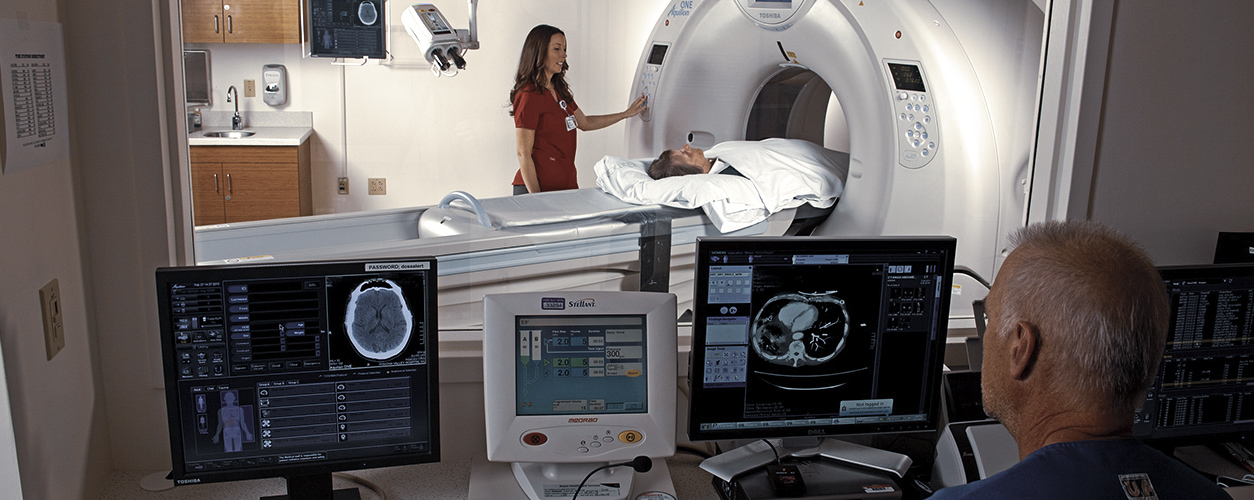
Nuclear Medicine
Diagnostic & Treatment Procedures
Nuclear medicine involves the administration of small amounts of radioactive materials for diagnostic and/or treatment procedures. Pomona Valley Hospital Medical Center offers full nuclear medicine services, including PET imaging, organ function studies, cancer studies, thyroid treatments, radioassay and other procedures.
A diagnostic nuclear medicine study provides information about both the anatomy and the function of a particular gland or organ. During the procedure, our certified nuclear medicine technologist will introduce a small dose of radioactive material usually via an intravenous injection. The material temporarily emits gamma rays from the specific gland or organ. A sensor or gamma camera is placed on the patient which detects the rays and the collected data can be converted into diagnostic images. Because the radioactive material is administered in a tiny dose and remains in the body for a relatively short time, the risk posed by nuclear medicine studies is minimal.
Treating Conditions
Nuclear medicine is also used to treat certain conditions - most commonly thyroid disorders or certain forms of cancer. Like the diagnostic studies described above, nuclear medicine treatment involves introducing small amounts of radioactive material into a particular internal organ or structure. In the case of cancer treatment, for example radioactive material is carefully positioned near the cancerous growth or tumor. The material emits radiation at a controlled dose, destroying nearby cancer cells while preserving surrounding tissues.
Although some nuclear medicine procedures require special preparation or an overnight hospital stay, most are performed on an outpatient basis and require only a few hours to complete.
If you would like more information on nuclear medicine services provided through PVHMC's Department of Radiology, please contact us at 909.865.9580.
